I'M ONE TO TALK
Our Blog Posts will help you reach your full potential in becoming a confident conversationalist. New topics each week.
Talking to People in Person: Commit to 30 Seconds

You can do anything for 30 seconds.
It’s a favorite saying for fitness instructors and personal trainers everywhere.
That encouragement always seems to come right before telling you to do something you don’t want to do or don’t think you can do. Then, after 30 seconds of more burpees than you really wanted to do, you’re done.
In other words: You can get more done in 30 seconds than you think, and it will be over before you know it.
It’s true in your workouts and when it comes to talking to people in person. If, after more than a year of working from home, you dread the thought of small talk and having conversations in real life then reframe what a conversation actually is.
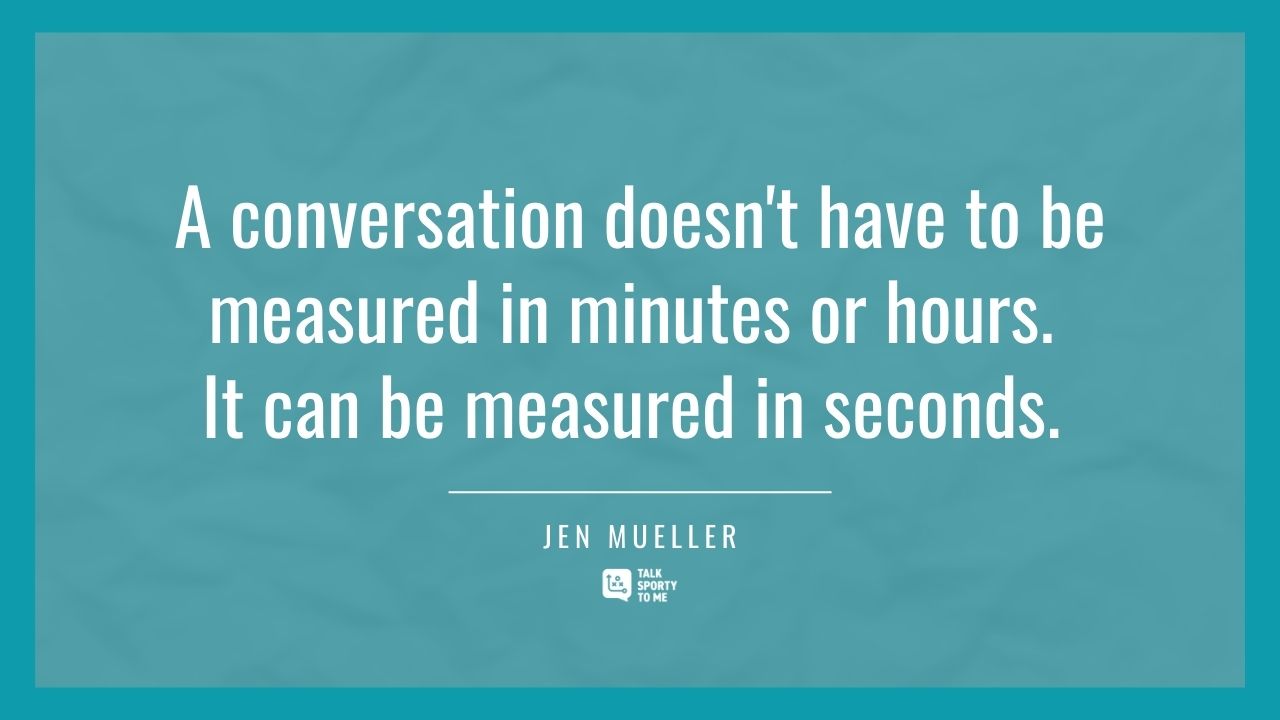
A conversation doesn’t have to measured in minutes or hours. It can be measured in seconds. Especially in the context of small talk, casually bumping into someone in an elevator, seeing a colleague in person for the first time, the conversation with the waiter at dinner.
Sure, a conversation with your bes...
Sports Conversation Starters for Your Workweek

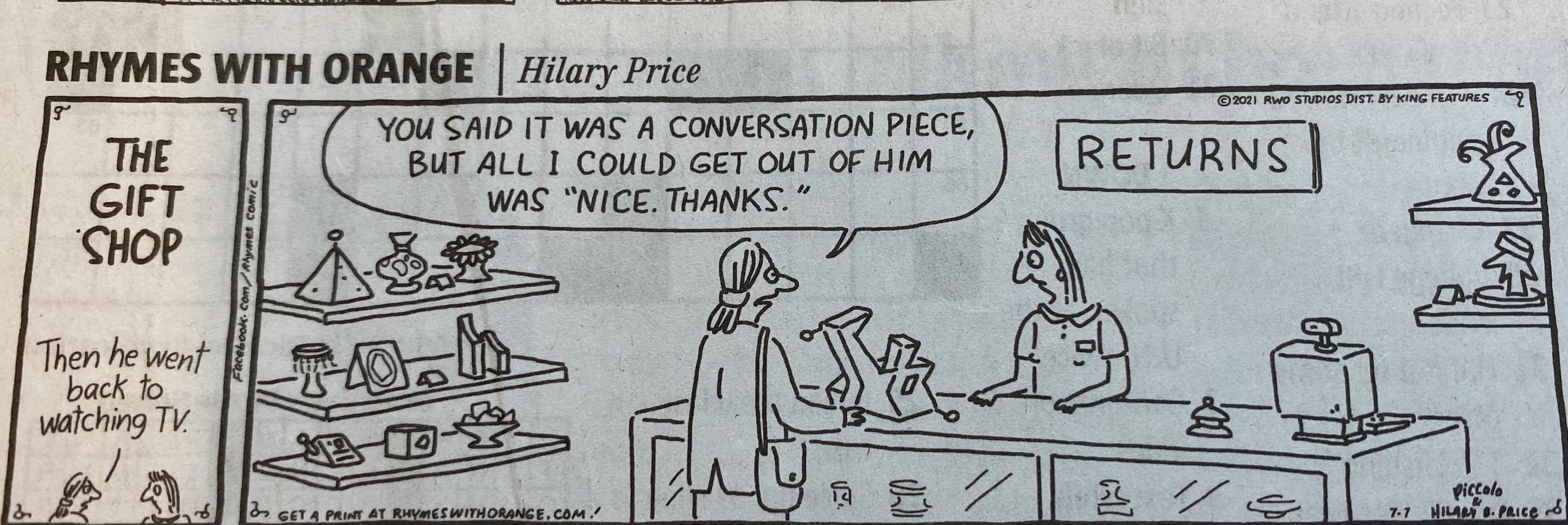
The cartoon made me laugh for how accurate it is in my house, but it's also a reminder that it takes a little work to start a conversation with someone.
Don't put the onus on them to make the conversation work. (And if you do, don't be surprised if you get a two-word answer.)
Instead, make a plan, prepare for conversations ahead of time and have a conversation starter ready that will actually lead to an interaction. These sports conversation starters are ideal for small talk this week. 
Sports Conversation Starters for Your Workweek

People follow people not plans.
Sports fans connect with personalities not stats. It’s an athlete’s willingness to show who they are that creates that connection. Their game-day actions and results are only part of that equation. Their personality really comes through in interviews and 1-on-1 interactions with fans.
If you only “stick to business” and think small talk is a waste of time, you’re missing opportunities to connect and probably don’t have the relationships or rapport you think you do.
You can use small talk to connect, share personal stories (not your entire life story) and build relationships. Sports is a great topic to utilize in small talk. Here are a few topics that would work this week.
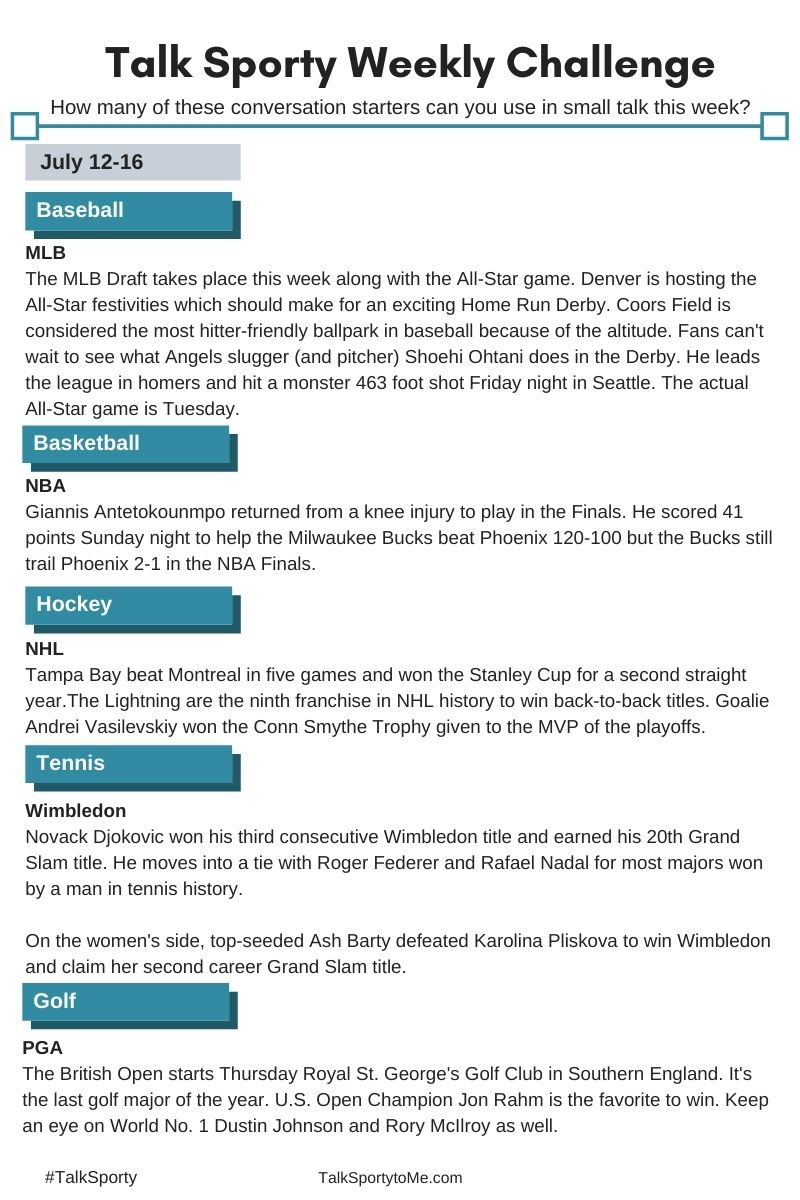
Sports Conversation Starters for Your Workweek
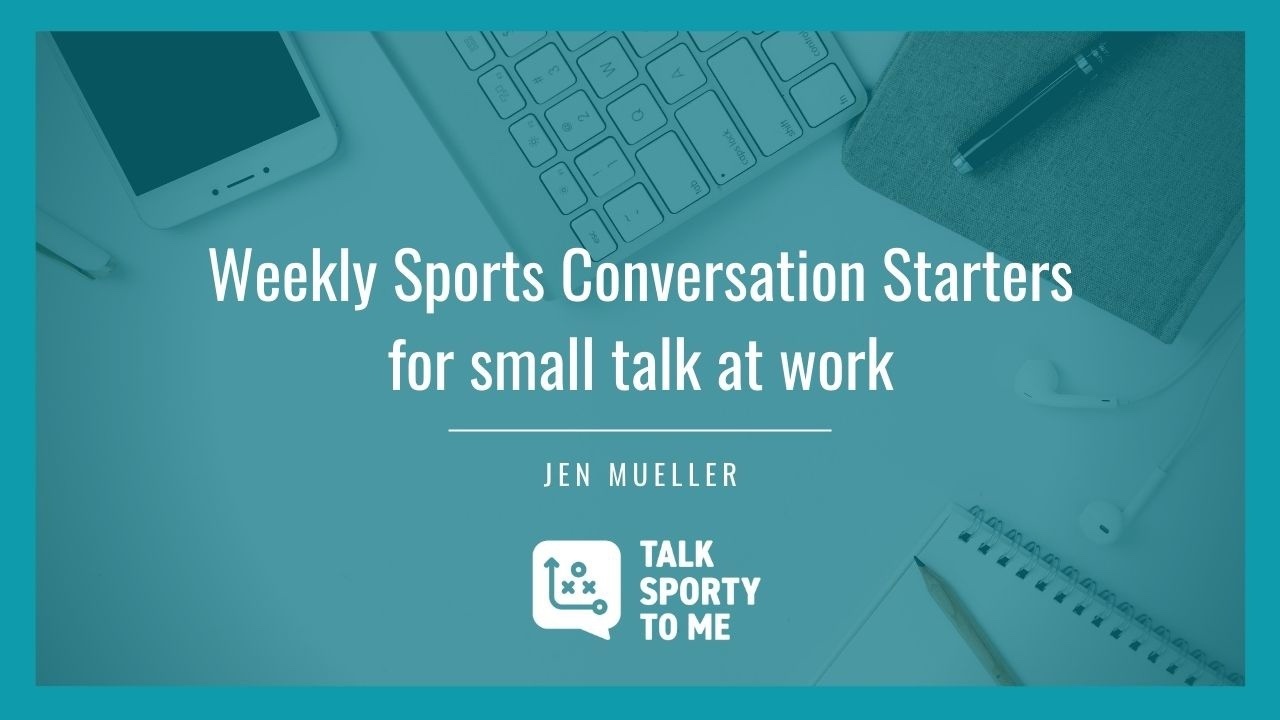
Much like your own personal accomplishments, sports accomplishments can vary. For example, Joey Chestnut broke his own world record Sunday at the Nathan’s Famous hot dog eating contest by eating 76 hot dogs (and buns) in 10 minutes. Just typing that sentence makes me feel queasy, but I would probably jump at the chance to join a pie eating contest.
As silly as it is, that hot dog eating contest makes for great small talk this week along with these more serious sports headlines.

Sports Conversation Starters for Your Workweek

“Our brisket is stupid, but you should totally get the fried catfish because it’s freakin’ bomb.”
I’m not sure those are words I would use to describe menu items, but I love that our server Saturday night used them. It wasn’t just an endorsement of the menu and the chefs, it was a picture into who she was a person. I watched her personality come through in every interaction she had with customers, colleagues, and the chefs. It was fun. And it was a reminder that authenticity comes through in many different ways – including the words we use in conversations.
Choose your words carefully, or strategically when you choose from this list of sports conversation starters to use in small talk this week.

Sports Conversation Starters for Your Workweek

There’s no one way to be a sports fan. You can be a casual fan, novice fan, hard-core fan or social fan.
Don’t count yourself out of conversations because you don’t think you watch enough sports. Don’t refrain from starting a sports conversation because you’re talking to a novice fan.
Be the type of fan you want to be. Use these sports conversation starters to get the ball rolling.

Sports Conversation Starters for Your Workweek
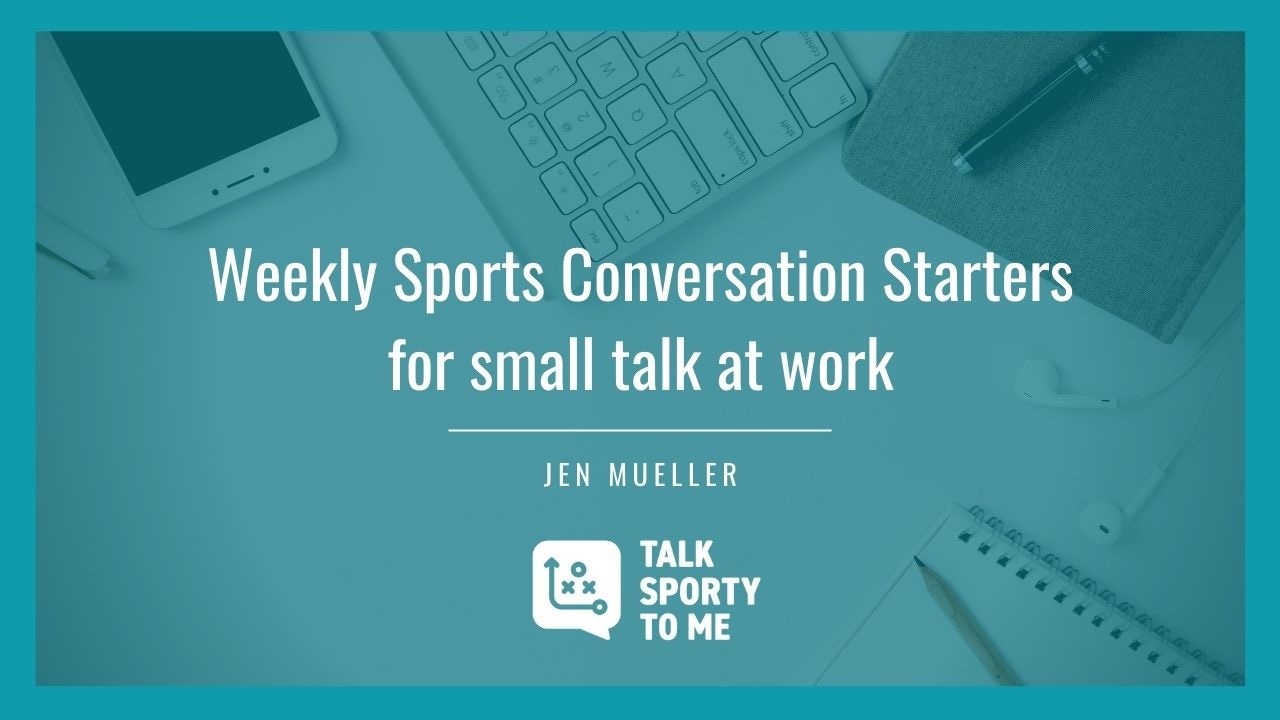
You know how I keep saying that sports is more than stats and scores?
Well, sports can also be about pets. Did you see the Westminster dog show this weekend? That’s a conversation starter worth using this week.
If you prefer more traditional sporting events there are plenty of those to choose from as well. Take a look at this list and use a few in conversations this week.

Talking to People in Person: Start with Hello
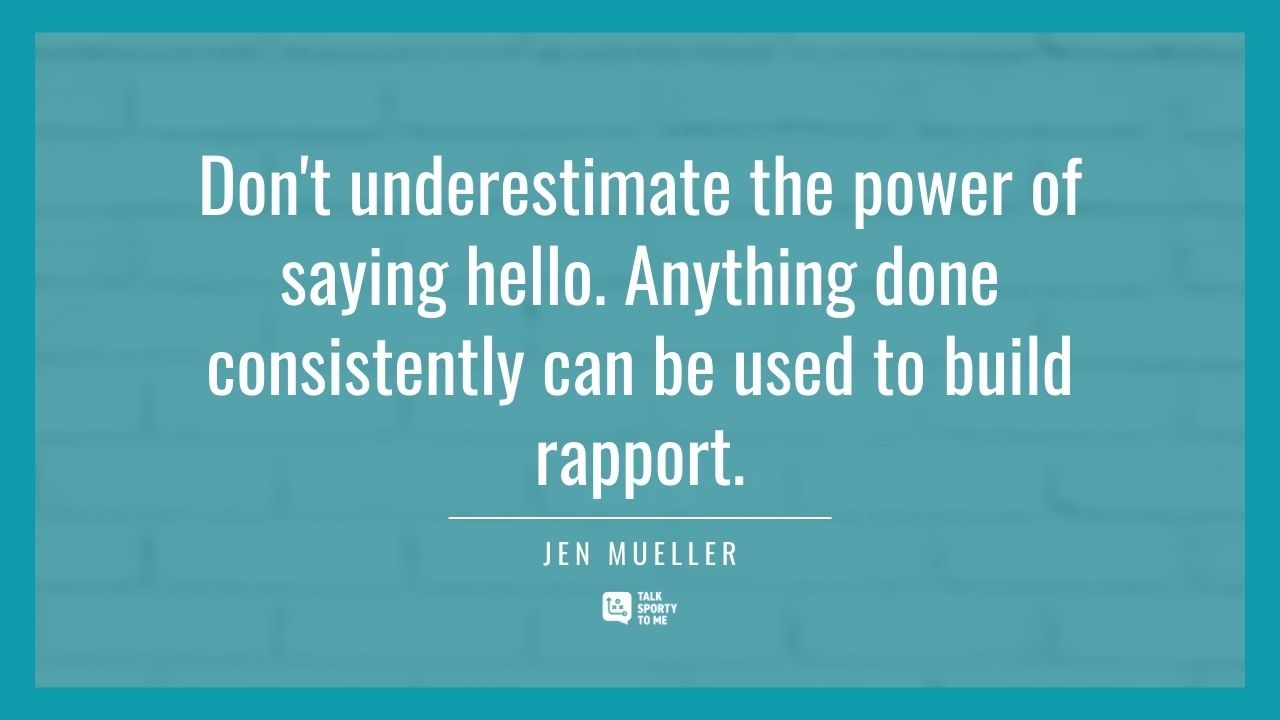
I don’t think about myself as working in a male dominated environment. Which sounds odd coming from someone who’s spent 20 years inside sports locker rooms as a sideline reporter and sports broadcaster.
I get lots of questions about what it’s like in a locker room. Here’s what I see: Talented and skilled people who want to excel and succeed at a high level. People who can deliver in pressure situations because of the hours they spend training and preparing.
There are two things you should recognize about what I just described:
- I could just as easily have been describing the people you work with. The job descriptions are different but the drive and desire to win can be the same. (Although your office probably smells better and has less laundry on the floor.)
- This is not a group of people that has time to waste in their day. Athletes regularly put in 10 to 12-hour days and sit through more meetings than you might realize.
When I take these things into consideration here’s how I ...
Sports Conversation Starters for Your Workweek
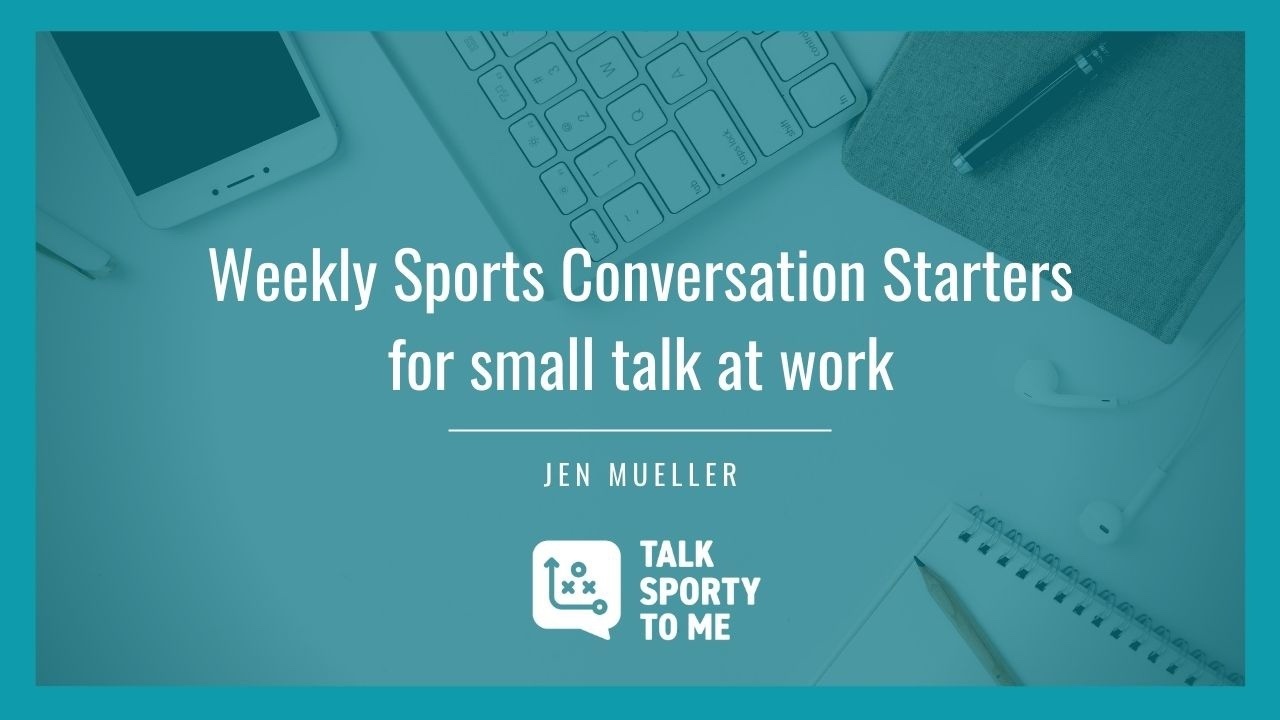
You don’t have to watch a game to talk about the outcome. Just like you don’t have see a TV show to know what it’s about. And you don’t need to follow an actor’s entire career to enjoy a little celebrity gossip (if that’s your thing.)
Here’s what you do need: enough information and confidence to have a conversation.
Whether you’re skimming the latest version of People magazine (which I actually did while on vacation this weekend) or glancing through these sports conversation starters. Don’t discount how much you don’t know without realize that you probably know more than enough to make small talk for 30-60 seconds, and that’s all it takes.
Here’s something else to consider: the process is the same for building your knowledge base whether you’re talking about sports, music, entertainment, bitcoin, etc…
- Start small with a headline or two.
- Keep the conversations short.
- Have an exit strategy.
I’m going to cover exit strategies as part of a webinar later this week on How to Talk ...
Sports Conversation Starters for Your Workweek
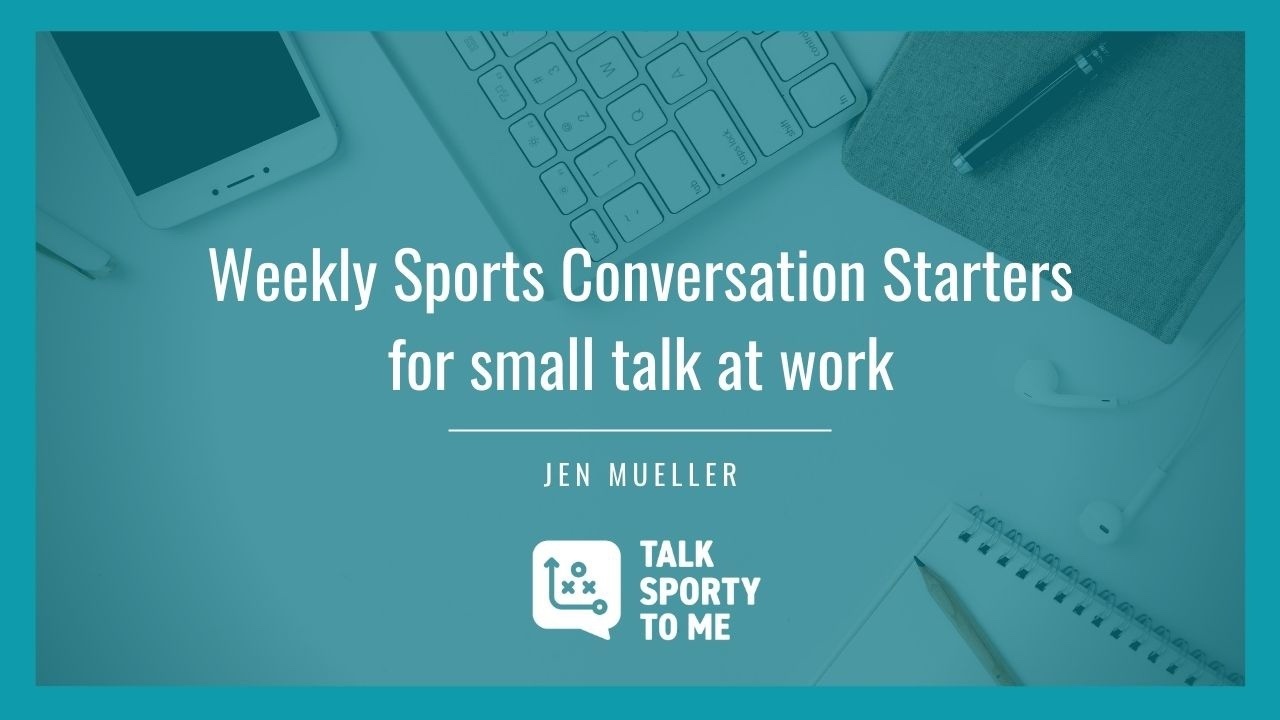
With so many sporting events happening over the weekend this is the perfect chance to sit back and let sports fans take the lead in small talk this week.
We’re not just talking “Big 4” sports (football, basketball, baseball and hockey.) Tennis, soccer, racing, horse racing and golf are in the headlines this week. And don’t forget about little league, softball and other youth sports taking place right now. A lot of things fall under the sports umbrella. Think bigger when you start the conversation and let the sports fan you’re talk to run with it.



